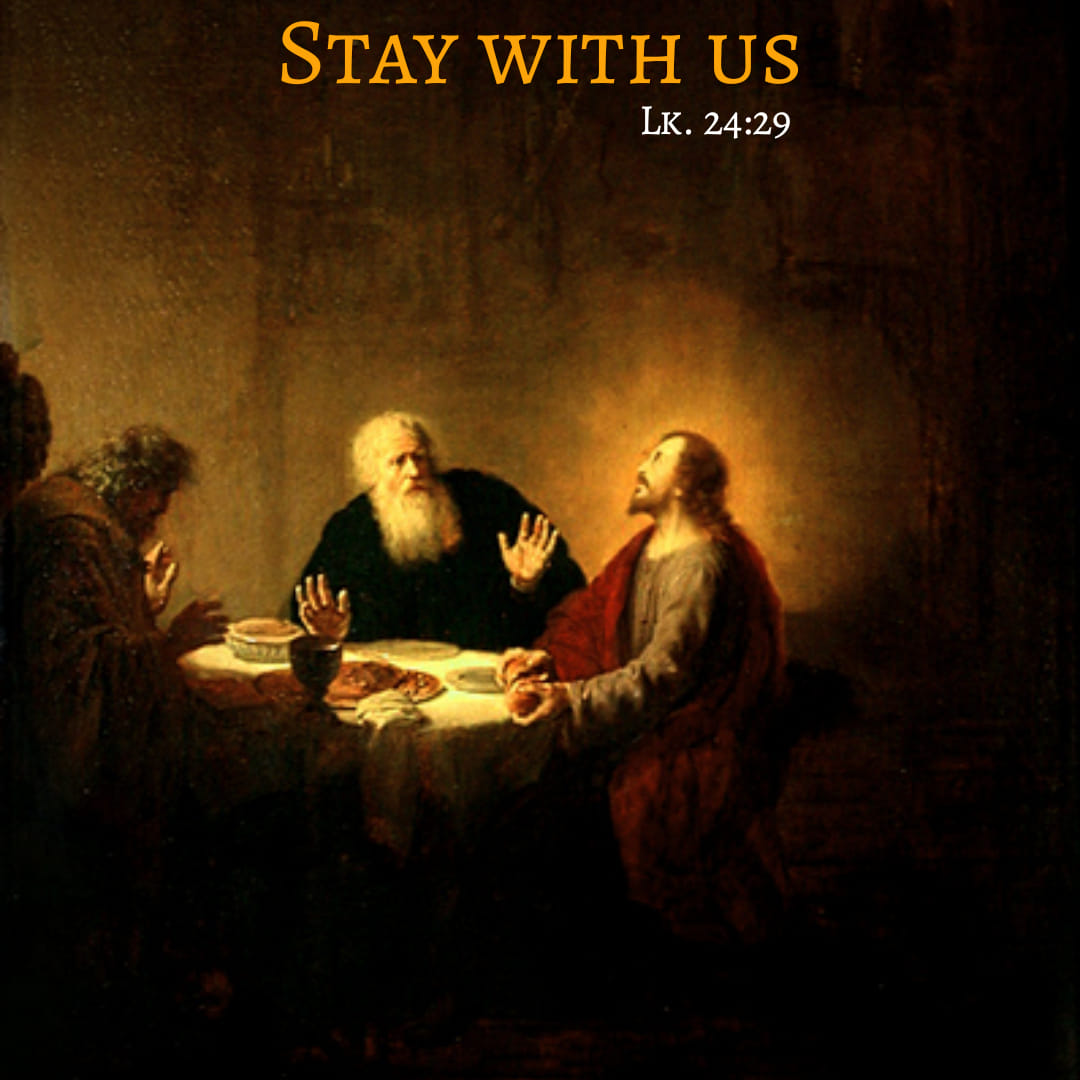
Lk. 24: 13-35
All of us are familiar with the historical writings. As a subject, we all have studied some elements of world history or the history of our own country, etc. The factor that makes a historical work notable is its adherence to the truth. We can observe a certain amount of subjectivity in all the historical writings and it is true that we cannot have a hundred percent objective historical data. A famous quote of Lonergan states: “objectivity is the fruit of authentic subjectivity.”
In today’s gospel, we see an interesting statement by Jesus; He calls two of his disciples, who went to Emmaus as ‘foolish men.’ The evangelist or the tradition that written down the Lukan gospel could have eliminated this phrase and justify the disciples. Anyhow, they presented facts as fact. Let us reflect on the fact that why did Jesus call them foolish men? After the death of Jesus, the disciples were extremely frightful. They locked themselves in the room. They thought that the Jewish religious leaders would attack them for being the close collaborators of Jesus. A few days after, some of them went back to their old profession, Peter and company went for fishing. These two disciples might have been going back from Jerusalem to Emmaus so that they could get back to their family and start again.
Their hearts were cold and discouraged because all their dreams are shattered; their Master whom they thought who would set Israel free from Roman slavery is now dead and gone. Jesus gave them sufficient indication with regard to his passion, death, and resurrection during his lifetime. Yet, they tried to stick on to their mental frame of a glorious Messiah rather than the suffering servant of Yahweh, mentioned in the prophetic writings. Anyhow, the interesting factor is that the same day some women from their group had visited the tomb and testified that Jesus is risen and alive. Some of the other disciples witnessed the empty tomb. Anyhow, they were not ready to believe, and at the earliest, they wanted to come out of Jerusalem so that they could escape from these ghost stories.
Jesus joins with them as a stranger on their journey. Jesus lends his ears listening to their frustrations. He begins his conversation calling them ‘you foolish men, so slow to believe all that the prophets have said.’ However, his heart was filled with love for them. He did not want them to leave Jerusalem, within a few days of time, they would be empowered by the Spirit so He tries to make them understand all that is written about him and how it has been fulfilled in his life. Then their cold hearts were started to melt and burn with passion for their Master.
Jesus joined with them as a stranger; Now, He is no more a stranger. They recognize in him a light something that is similar to their Master. Even then they could not recognize him. Then he did something that could be very fresh in their mind because before his death he gathered all His disciples and broke bread for them and told them that to do it in his memory. When He broke the bread, their hearts were filled with his memory, and his unconditional love for them. Now, they had no other choice other than recognizing their Master but at the same moment, He disappears. The foolish men who were filled with fear and ran away from Jerusalem, now, travelling back to Jerusalem. They are no more fearful because their inner eyes could see the unseen companion who travels with them.
Dear friends, after hearing so much about Jesus and his gospel at times we too could remain as foolish without getting deepened in our faith. It can be because Jesus remained only in our intellectual level, we did not take Him to our heart – ‘are not our hearts burning within us, when we hear about Jesus?’ If not let us share our frustrations with him, especially all our shattered dreams because of the inconveniences caused by the Corona pandemic. He is walking with us; let us invite him to stay with us in this our dark hour… He will break the bread for us and lead us in hope…